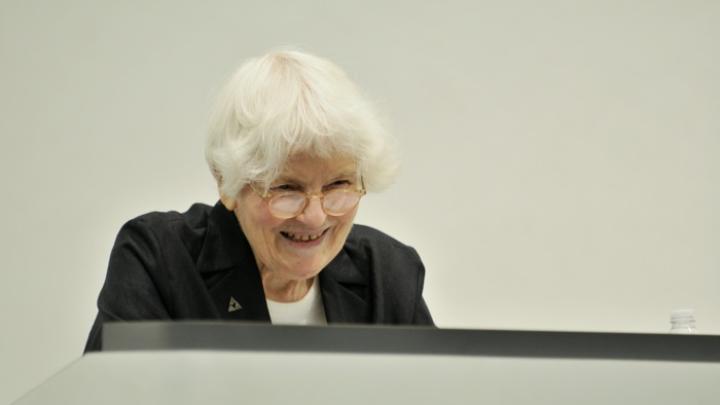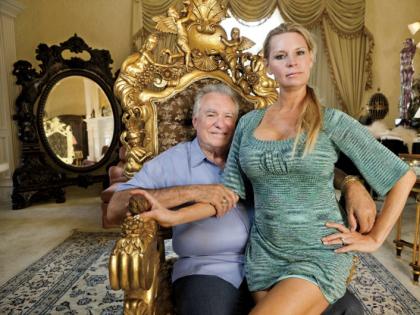“Dare to contemplate the crazy—it may lead to deeper sanity—and the ugly. It may be right and eventually even beautiful—but this is risky,” renowned architect and urban planner Denise Scott Brown told her audience on Class Day at the Graduate School of Design (GSD).
Scott Brown’s wide-ranging speech touted boldness, but also covered her childhood in South Africa, her battles as an urban planner, the woes of being rejected for projects, and the utter joys of hitchhiking, which she did extensively as a young woman and recommended highly to the graduates as a way to truly experience the wider world and make international friends. “You will never see the world again the same way when you are older,” she asserted.
Now based in Philadelphia, Scott Brown is a former lecturer at the GSD and in 2002 designed the campus plan for the Radcliffe Institute for Advanced Study. She is a principal of Venturi, Scott Brown Associates and, along with her husband, Robert Venturi, is among the most highly regarded architects of the twentieth century.
But in her speech she was quick to downplay her influence, saying that she was now a grandmother adept at writing living wills and more in demand more for her institutional knowledge than for her architecture. The advice offered the crowd in the Gund auditorium was sound nonetheless. “‘Yes we can’ must vie with economic depression,” she said. “This can be an exciting time if we remember that smaller budgets call for greater imagination and tackling hard problems can produce brave and beautiful results.
“The feeling of seeing a building that is in good shape and functioning well that you conceived of is an unbeatable experience,” she added—despite the intense vicissitudes of a career in architecture, including the recognition that equality for minorities and women is “a long way off,” and that the glass ceiling is alive and well. She also spoke of “finding that the processes and persons in professional life can be immoral,” “that your own good colleagues can betray—and that is very sad to see. But I guess this is business.”
To counter the practicalities of the negative, she urged the graduates to listen to their own “heart, mind, and eyes.” And she advised them, in the end, to “cleave to function for moral and aesthetic reasons, and hope to achieve beauty—even if it is an agonized type tuned to the tension of our times.”









